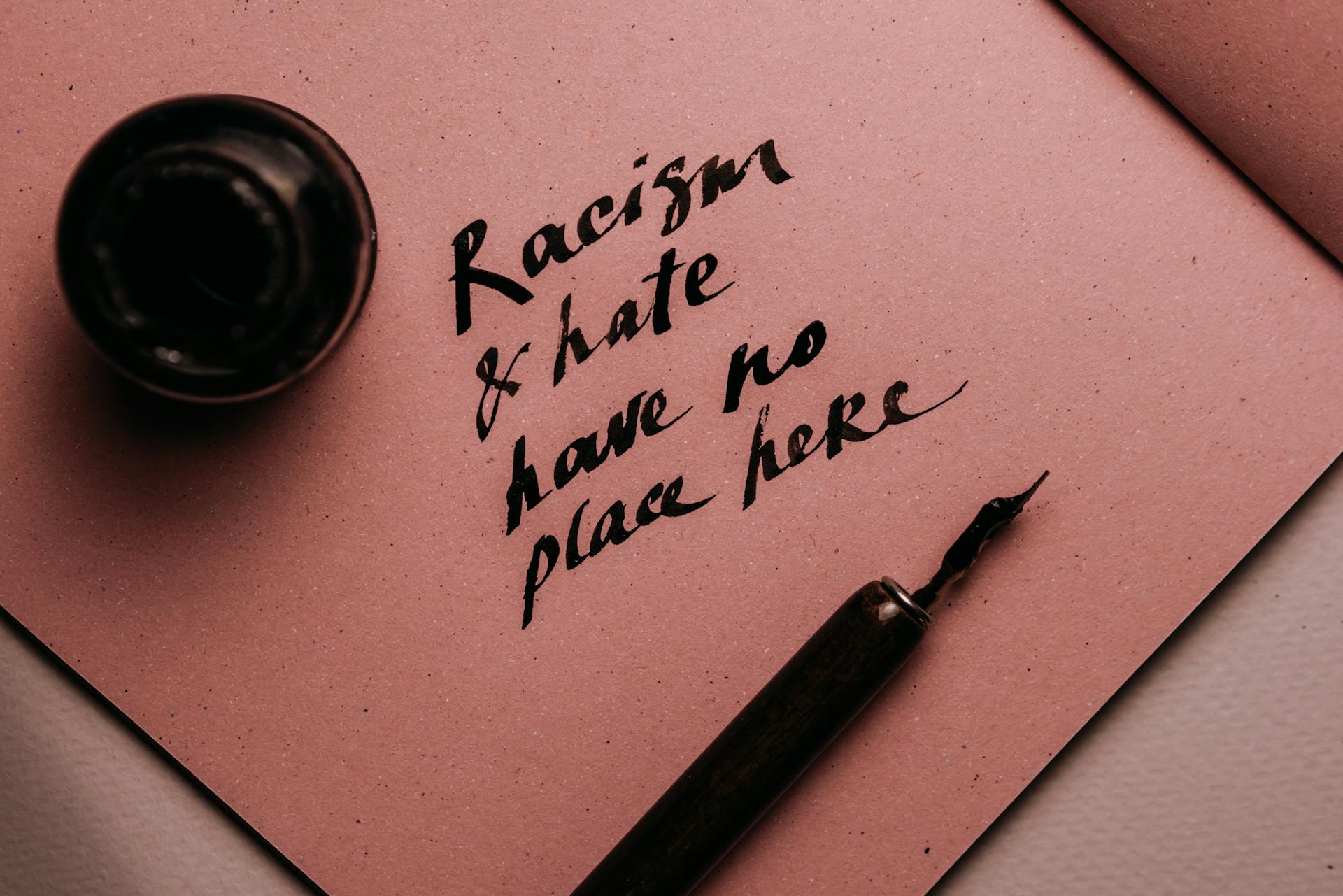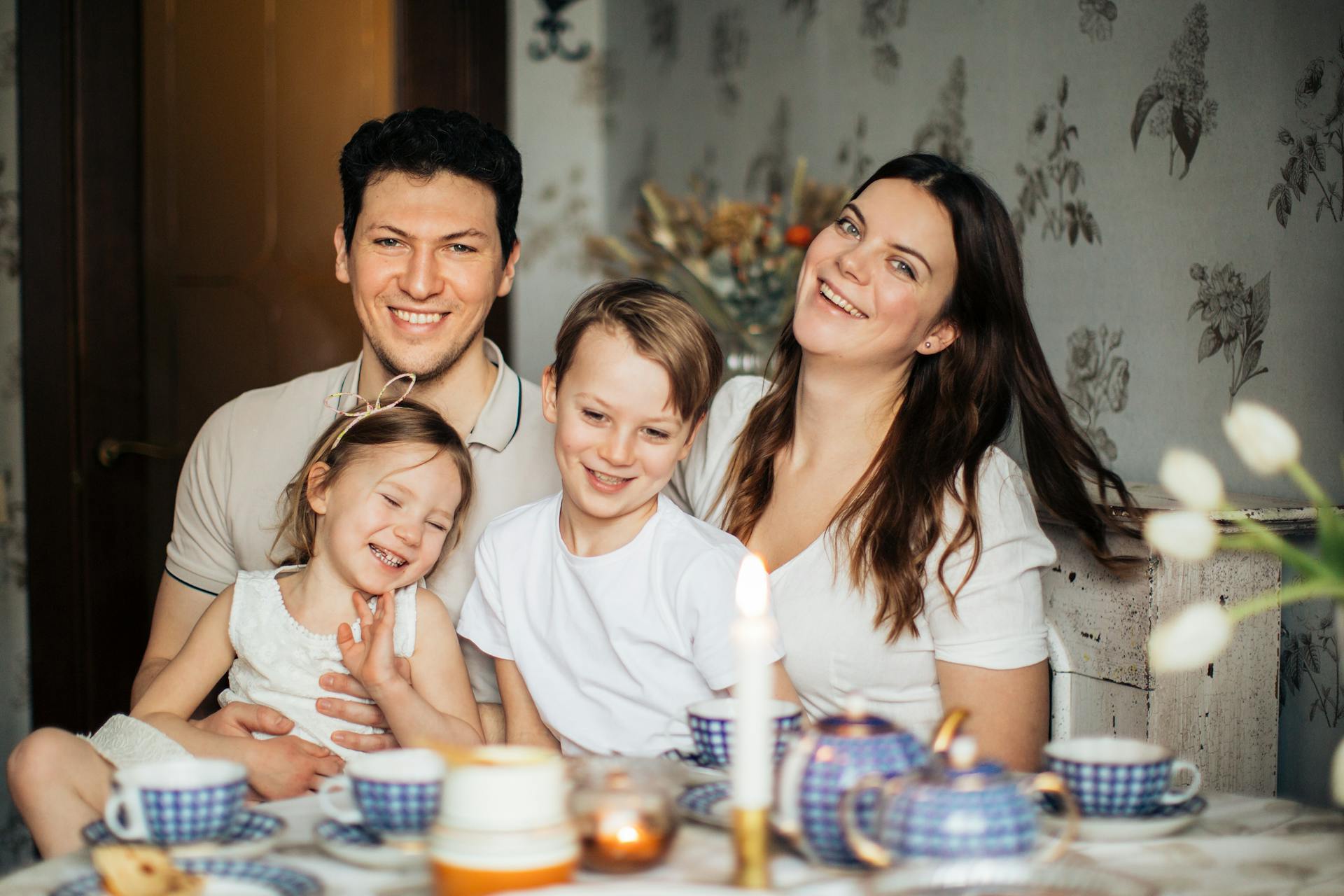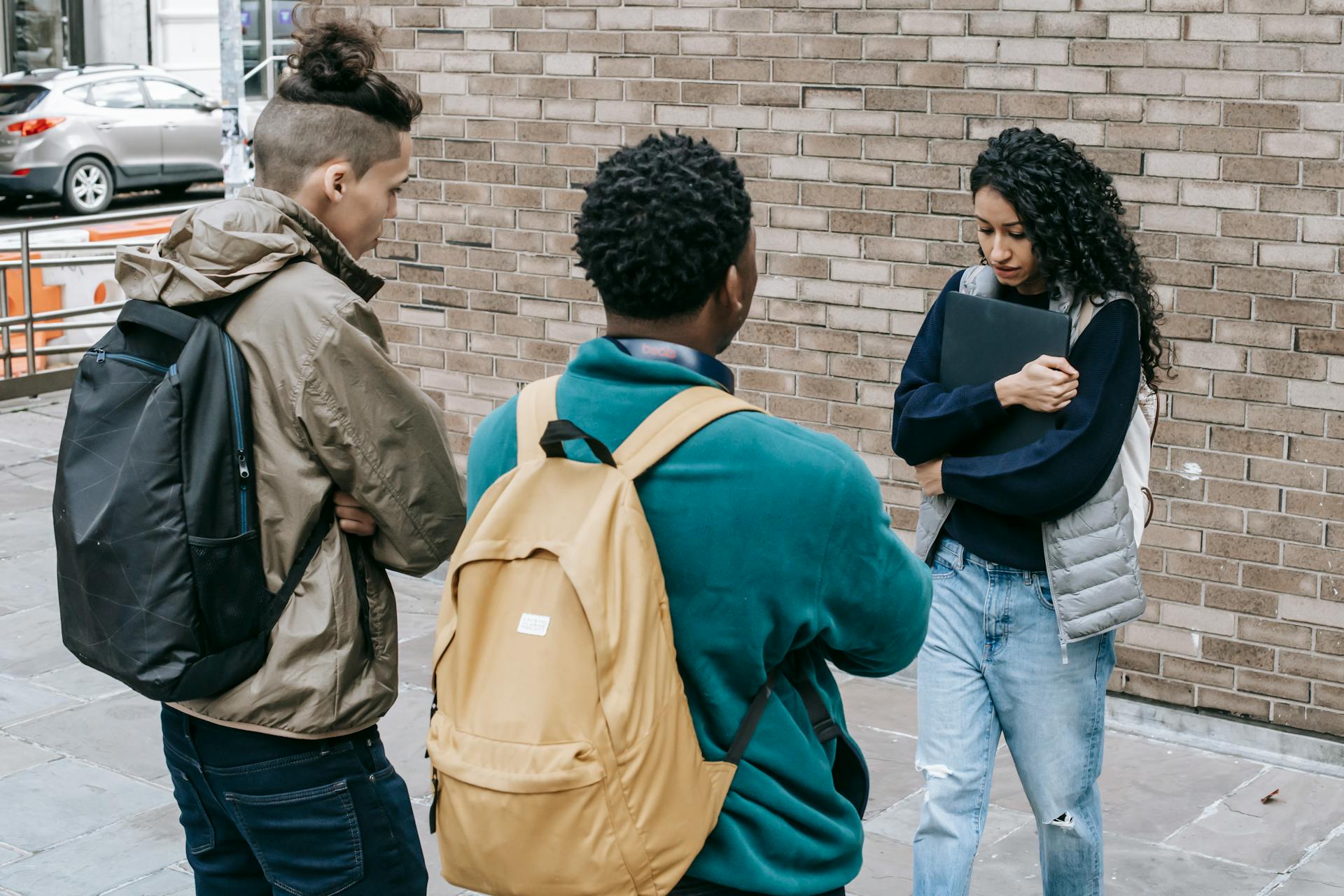
It's understandable that everyone wants to know why they're disliked by others, and it's hard to get a straight answer. That's why many people rely on quizzes like the "Why Does Everyone Hate Me?" quiz to gauge their likability. These quizzes are crafted to identify certain behaviors or habits that may be causing an unpleasant impression, but ultimately, the results of the quiz can't be taken as absolute truth.
The truth is, everybody has different opinions and feelings—some people will always find reasons not to like us even though we haven't done anything wrong. It may seem easier just accept these negative feelings as fact and think you're unlikable from then on out without questioning it further, but it isn't realistic or helpful to take every criticism so seriously with no attempt at understanding what lies beneath it..
Being aware of our actions does help in improving our likability; however, at times things still won’t go wrong in spite of doing everything right or having any logical reason for someone else not liking you much. This can leave you feeling completely lost and unsure what step should be taken next—which is where self-reflection comes into play rather than relying solely on quiz results reactively. The best way to determine why someone doesn’t like you is through a genuine conversation with them rather than taking a “why does everyone hate me?” quiz which often doesn't provide accurate feedback anyway!
What are the root causes of my feelings of being disliked?
If you're feeling like you may be disliked, it can be difficult to pinpoint the cause of those feelings. To better understand the root causes of your feelings of being disliked, it's important to reflect on what might be contributing to them. Here are some common root causes (and things to think about) that often lead people to feeling as if they are disliked:
1. Your mindset: Your thoughts and beliefs can have a huge impact on how you perceive yourself and interactions with others. If you have a negative mindset or feel like people don't like you no matter what, this could make it harder for others to show acceptance towards you - even if they actually do appreciate who you are and what you bring to their lives. It's important that we challenge our own negative self-talk in order for us to open ourselves up more and increase our acceptance from others.
2. History with relationships: If we've had difficult experiences in past relationships (with friends, family members or romantic partners), this could cause us difficulty trusting in new ones or believing that we're worth being liked by others now - especially when looking back into our histories doesn't offer much positive reinforcement either way! Working through traumas of the past will help build skills that make forming meaningful connections easier while reminding us that mistakes happened in the past are not necessarily indicative of how someone will treat us today!
3. Social anxiety: While anxiety is incredibly common among many individuals, significant nervousness around connecting with other people (especially new faces) can sometimes create barriers between ourselves and potential friendships/relationships - making it seem as though we may not be liked or accepted by peers even before giving them a chance! If social anxiety has been an issue for any length of time, seeking out counseling sessions surrounding personal growth may prove beneficial in overcoming these feelings over time!
Overall, understanding these root causes behind your feelings of being disliked can help give more clarity into why certain experiences have drastically impacted how confident one feels within themselves socially; finding ways forward from there is only a matter take away!
How can I assess my own self-esteem and social acceptance?
Assessing your own self-esteem and social acceptance can be a beneficial exercise, allowing you to gauge where you stand and make any necessary changes. Here are five ways you can assess yourself:
1. Make a list of your strengths and weaknesses. Writing out everything in tangible form will help you see where you need to improve or focus more energy into certain areas. Focus on things that are within your control instead of external factors like wealth or socioeconomic status.
2. Evaluate relationships in your life—both personal and professional—and look for patterns that arise among them all. Are people generally drawn to talk with you? Do they treat your opinions with respect? Identifying a pattern in how others respond to or interact with you is helpful in assessing how well accepted you are socially, as well as how well valued by others.
3. Monitor changes in moods when around different people, in different settings, or even when listening to music or reading books throughout the day. Observing yourself over different moments of the day will help reveal any positive reinforcement for further success (whether it be for internal boosts of confidence) as well as an overall assessment of surrounding social situations that either enhance self-esteem naturally or drag it down without cause.. This can give insight into where healthy boundaries may need to be established within friendships/work relationships if communication isn't consistent/honest enough from either party(ies).
4. Mentally consider past successes versus failures associated with tasks performed at work/school environments —As humans we tend to take things rather personally so understanding if our missed expectations were due solely by our own doing (or lack thereof) due let's us understand our abilities better & helps build a better outlook on realistic capabilities we have acquired thus far in life.. In this sense these terms extend out beyond academic/work aspects while including physical goals such as learning new sports / hobbies & picking up other activities ranging from artistic expressions (music performances etc.)to small home DIY projects which require creative problem solving materializing outside the daily textbook work grind! Keeping track both externally (awards competitions etc.)& internally allows us An opportunity To Self Assess over time!
5.Finally last but definitely not least, remember it's important not To forget about taking time away from judgements made towards self else it will be difficult To practice mindful self-care activities earlier mentioned; journaling setting appropriate expectations participating In meaningful conversations..this Is all defiantly Important parts Of working through blocks That inhibit healthy development & evolution Which can then lead back Into measurable Increases not only Of social acceptance but internal desire satisfaction which equates back Into overall positive sense of esteem!
What are the signs that I may be disliked by others?
The signs that you may be disliked by others vary from person to person. Yet, there are some key indicators that may show a pattern in the way people interact with you.
1) You’re not getting invited to social events – If it seems like everyone else is getting invited to gatherings but you're not included, it's a definite sign that people do not feel comfortable having you around.
2) Other people avoid eye contact or actively look away when they see you – It’s one thing if someone accidentally breaks away from eye contact, but if someone catches your eye and then immediately looks away or turns around, it’s because they are uncomfortable and would rather be somewhere else than with you.
3) People who used to be friends suddenly start avoiding any form of physical contact with you – If your old group of friends noticeably stops being physically close with each other and goes out of their way to avoid touching or partying near/with you - think twice about the kind of relationship all these individuals share together, if any at all.
4) Bad Rumors Spread About You – Another sign that points towards disliking is when obviously false information starts spreading about your character. A signature trait of those who don't like someone is turning other's opinions against them through gossiping or malicious rumors and lies spreading quickly over social media platforms as well as word-of-mouth between individuals who know each other well enough for credibility and personal motivation for bad mouthing another person summed up in plain words: "Numbers 8 & 9".
If any one combination matches up; remember: unfortunately dislike can sometimes come our way due no fault whatsoever on our part! Others simply need an outside target for externalizing their own frustrations onto -this doesn't make either party right per se; though brings both closer towards realizing & perhaps understanding where their personal boundaries should lie better. Good luck & take care!
How can I learn to cope with negative feelings caused by social rejection?
Social rejection can be one of the most challenging and painful experiences we face. While there is no quick fix, there are ways to learn how to cope with these negative feelings so you don't feel overwhelmed.
1. Accept your feelings: This can be the most difficult step in coping with negative feelings caused by social rejection, but it is essential if you want to move forward in a healthy way. Why?️ Because denying or repressing our feelings leads to more internal suffering and higher levels of anxiety and depression over time. It also prevents us from being able to better understand, regulate, and express our emotions effectively.
2. Reframe your thoughts: We often only see things from our own frame of reference which can give us a skewed view of what has happened or what other people around us are thinking or feeling about a certain situation or event. Take some time out for yourself and practice reframing any negative self-talk into something more positive that acknowledges all that you have achieved despite any challenges you face along the way.
3. Reach out for support: It’s important not to bottle up these emotions because when we do this they only become worse over time as they build up inside us until we eventually explode in an unproductive manner at some point down the track 🤯 Instead take steps towards getting help by reaching out for support from friends or family members who won’t judge but instead provide much needed comfort and understanding during this turbulent time 💞 Talking it through helps put things into perspective because sometimes, simply talking about it makes everything seem much less daunting than initially imagined! 😊
4.Remind yourself that everyone gets rejected sometimes.Though it may feel isolating in that moment,it is important to know that no one goes through life without experiencing some degree of social rejection at different points along their journey.Realize this isn't just happening to you — everyone faces occasional rejections due these types of experiences being an ineviatibe aspect life ❤️
5 Practice self-care :Self-care practices such as journaling individualised relaxation techniques,listeningto calming music,doing yoga/mediation,and slowly building up physical activities such as going on short walks around nature will all help improve mental health by providing space for inner reflection,coping mechanisms and the ability learn how manage various stressors!! 😌
What strategies can I use to become more socially confident?
One of the most effective strategies to become more socially confident is to arm yourself with knowledge and resources. Take the time to do thorough research on topics that you are interested in, or that may be relevant to conversations you might encounter in a social setting. Learning about different topics can help boost your self-assurance and feel more prepared should a dialogue arise.
In addition, practice effective communication techniques such as active listening, maintaining eye contact and asking open-ended questions while engaging with others helps cultivate social confidence. Strive to listen fully when someone speaks and pay attention to body language cues in order to properly respond or participate in collective conversations.
Lastly, surrounding yourself with positive influences is critical for building your self-confidence among peers and friends alike; it’s always better not only for a sense of security but also for personal growth when it comes interacting with other people inside or outside your immediate circle. Consider finding outlets where you can build relationships that help grow your social development like volunteering initiatives or activities at a local community centre. Group activities provide great opportunities for making new connections as well including sports teams, seminars or memberships at area health clubs.
Becoming socially confident is often a gradual process but reaching out from where you are now will help stimulate the confidence needed gain clarity into who we really aspire of becoming fit within our individual perspectives of how we want others perceive us.
How can I build healthy relationships with people in my life?
Building healthy relationships with people in your life doesn’t have to be complicated, and it doesn’t require you to be best or smartest person in the room. It does require that you are open, honest, and attentive when interacting with others. Here are a few key tips for creating long-lasting relationships:
1. Respect Others -It’s impossible to have a healthy relationship if one or both parties don’t show respect for each other. Respect is all about treating someone else as you would like to be treated yourself -- with kindness, politeness and consideration for other people's feelings. So practice being polite and listen carefully whenever someone is talking in order to foster mutual respect.
2. Communicate Clearly - Communication is key in any relationship; it allows us to truly understand one another without jumping to conclusions or making assumptions about what someone means by their words or actions. Make sure to take the time necessary when communicating with those around you so both of you can really comprehend what each other are trying say and how they feel about the topic at hand.
3. Show Appreciation & Support - Everyone likes feeling appreciated! Expressing genuine gratitude when somebody does something nice will make them feel valued and understood by their peers – thereby deepening the connection between individuals who hold each other dear. Also use words of support during times of hardship; this helps build up confidence while letting your friend know that they can depend on even during hard moments
4 Take Time Apart- Even though it’s important spend quality time bonding, it’s also essential that each person take some space away from one another too! Spending too much time together might lead resentment due lack boundaries and privacy needed maintain sanity,so remember give yourself break & reconnect later so keep relationship stronger
Following these tips should set up the foundation for successful interpersonal relationships among family members, friends, coworkers etc... Every connection is unique though so there may be additional ways tailor advice special situation, just like everything else care every bond requires an individualized touch shine!
Sources
- https://mentaladvisor.eduknowz.com/8-signs-youre-secretly-disliked-by-others/
- https://www.cgaa.org/articles/why-does-everyone-hate-me-quiz
- https://lovefitnessmoney.com/videos/8-signs-youre-secretly-disliked-by-others/
- https://thepleasantmind.com/social-rejection/
- https://uquiz.com/quiz/IoFNp1/why-do-people-secretly-hate-you
- https://mantracare.org/therapy/negative-feelings/negative-feelings/
- https://graphicjunkies.com/how-to-be-more-socially-confident-5-incredibly-easy-tips/
- https://habitsonpurpose.com/think-feel-behave/
- https://socialconfidencemastery.com/social-confidence/
- https://lindadarin.com/finding-the-root-causes-of-my-anxiety-and-depression/
- https://www.quotev.com/quiz/275932/Why-does-everyone-hate-you
- https://www.talentedladiesclub.com/articles/how-to-build-healthy-relationships-with-positive-people/
Featured Images: pexels.com


